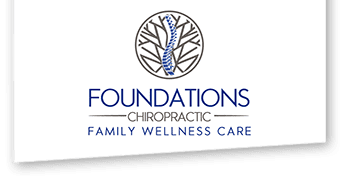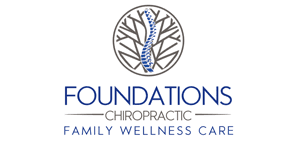Gratitude in Zionsville

Now more than ever, it's so important to count your blessings.
This past year has proved to be a challenging year for everyone in Zionsville and we've all been constantly bombarded with stress.
Luckily, the conversation surrounding what this stress is doing to our mental health is becoming a much more open topic for discussion.
There are now so many more resources and so much more research out surrounding mental healthcare and self-care than there was even 5 years ago. Activities such as journaling, practicing gratitude, and meditating have become mainstream and even trendy.
So what's the research behind it, why should you care, and how do you start?
The Research Behind Gratitude and What it Can do for You in Zionsville
An awesome article from Harvard Medical School describes gratitude as "a thankful appreciation for what an individual receives, whether tangible or intangible. With gratitude, people acknowledge the goodness in their lives. In the process, people usually recognize that the source of that goodness lies at least partially outside themselves. As a result, gratitude also helps people connect to something larger than themselves as individuals — whether to other people, nature, or a higher power."
Gratitude is actively acknowledging and appreciating the people and world around you. While that may sound intangible and slightly "woo-woo" there have been several studies done to prove the tangible benefits of consistently practicing gratitude.
A 2003 study asked 3 different groups to write a few sentences weekly on different topics. One group was asked to write about things they were grateful for, another group was instructed to write about things that annoyed or irritated them, and the third group wrote about neutral topics. After 10 weeks, the group that practiced gratitude showed higher amounts of optimism and even had fewer visits to the doctor compared to the group that wrote about negative experiences.
Another study that came out of Indiana University similarly looked at 3 separate groups who were all receiving counseling services. The first group was asked to write one letter of gratitude to another person each week for three weeks. Conversely, the second group was instructed to write about their deepest thoughts and feelings about negative situations. The third group did not participate in the writing practices. The group that practiced gratitude reported significantly better mental health than both other groups 4 and 12 weeks after their gratitude practice ended.
The same researchers examined what parts of the brain were activated during a similar study where participants wrote gratitude letters. They found that people who wrote these gratitude letters showed more activity in their medial prefrontal cortex (involved in learning and decision making) and this activity was still found 3 months after writing the letters. This suggests that practicing gratitude may have a long-lasting effect and can train your brain to be more sensitive to things you are grateful for! One of our favorite phrases in our office is "nerves that fire together wire together". Practicing something like gratitude with consistency changes the way that the neurons in your brain fire. And the more that they fire together, the more you reinforce that brain pathway, and the easier it is to do next time!
So why should you care?
That's great to be able to be more grateful and to appreciate the things you have, but what does that do for you long term and how could a gratitude practice change your life?
Practicing gratitude has been associated with general well-being, better sleep, more generosity and less depression.
Ilene Rosenstein, a psychologist and associate vice provost for campus well-being and education at USC states “people who are grateful get less triggered or angry, they have more positive feelings, and in some ways, that attracts other people,” she said. “When you feel these positive emotions and relish good experiences with others, there’s a bonding in that, and it tends to build stronger relationships.”
In a time where we may feel isolated and alone, finding ways to better connect and bond with friends and family to show them how much you care can help your own mental health as well as theirs!
So how do I start?
There are so many ways to practice gratitude, sometimes figuring out what you could do can feel overwhelming. Here are some of our favorite ways to incorporate gratitude into our day:
Start your morning with 3 things you're grateful for. We keep a notebook open next to our coffee maker where we both write 3 things we're grateful for every morning. It takes 30 seconds and it helps us set the tone for the rest of the day.
Write a Thank You note. When's the last time you got a handwritten thank you note? It feels good to read words of gratitude from someone. And it also feels good to write one! It doesn't have to be anything lengthy, just a few short sentences to someone who went out of their way to help you out. Can't think of who to write one to? How about your banker, your realtor, a co-worker, your kid's teacher, or your chiropractor! 😉
Look around you. Play the old-fashioned game of "I Spy" during your commute or maybe during your lunch break. Look around you and think about the things you're grateful for in your immediate surroundings. Maybe it's the to-go mug that makes your drive a little bit more cozy, or the comfy chair at your workstation. Finding a trigger in your day (like a drive or a break from work) that will encourage you to take 30 seconds to think of the things you're grateful for is a great way to help you refocus and recharge.
The hardest part, as with forming any new habit, is just starting. Set a small goal for yourself that you can build on over time. If you forget or fall off don't beat yourself up. Try to figure out ways to hold yourself accountable and keep practicing. That's the beauty in creating a practice - it doesn't have to be perfect, you just have to keep trying and working on it.
References
- https://www.health.harvard.edu/healthbeat/giving-thanks-can-make-you-happier
- https://pubmed.ncbi.nlm.nih.gov/12585811/
- https://www.tandfonline.com/doi/abs/10.1080/10503307.2016.1169332?scroll=top&needAccess=true&journalCode=tpsr20
- https://greatergood.berkeley.edu/article/item/how_gratitude_changes_you_and_your_brain
- https://news.usc.edu/163123/gratitude-health-research-thanksgiving-usc-experts/

About the Author
Dr. Danielle loves providing chiropractic care to all ages and is especially passionate about taking care of perinatal women and kids. Dr. Danielle is currently completing postdoctoral training in prenatal and pediatric care through the International Chiropractic Pediatrics Association.
She is certified in Webster’s technique (a technique that focuses on balancing the pelvis during pregnancy) and anticipates certification through the Academy of Family Practice Council on Chiropractic Pediatrics in 2021.
In her free time, you can find Dr. Danielle at a farmers market, yoga class, or trying out a new healthy recipe. Dr. Danielle is forever a learner and spends much of her free time reading or listening to podcasts and audiobooks.
OFFICE HOURS
Monday
8:30am - 12:00pm
2:30pm - 6:30pm
Tuesday
2:30pm - 6:30pm
Wednesday
8:30am - 12:00pm
2:30pm - 6:30pm
Thursday
2:30pm - 6:30pm
Friday
8:30am - 12:00pm
Saturday & Sunday
Closed
Foundations Chiropractic
7625 West Stonegate Drive Suite 100
Zionsville, IN 46077



